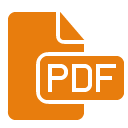Question
Recommendations
![]()
After analysing the evidence available on oral anticoagulants vs antiplatelets for the secondary prevention of stroke in patients with mitral valve prolapse, the following recommendation was made:
We suggest not using anticoagulants instead of antiplatelets in adult patients with mitral valve prolapse with an indication for secondary prevention of stroke.
Rationale
Below, we outline the rationale for one of the recommendations, highlighting the judgements of the GDG concerning the key criteria that justify the final recommendation.
The GDG considered that there was uncertainty given the lack of evidence regarding the benefits of the intervention considered in the question posed.
The GDG did not know the magnitude of the desirable or undesirable effects as no studies were found that analysed the proposed comparator.
Complete clinical question
For full information on this question (available in Spanish), see:
http://portal.guiasalud.es/guia-en-capas/guia-de-practica-clinica-sobre-prevencion-secundaria-de-ictus-actualizacion/#question-3
References
4. MacLean S, Mulla S, Akl EA, Jankowski M, Vandvik PO, Ebrahim S, et al. Patient values and preferences in decision making for antithrombotic therapy: a systematic review: Antithrombotic therapy and prevention of thrombosis, 9th ed: American College of Chest Physicians Evidence-Based Clinical Practice Guidelines. Chest [Online]. 2012 [accessed June 2021];141(2 Suppl):e1S-e23S. URL: https://doi.org/10.1378/chest.11-2290
5. Lip GYH, Banerjee A, Boriani G, Chiang CE, Fargo R, Freedman B, et al. Antithrombotic therapy for atrial fibrillation: CHEST Guideline and Expert Panel Report. Chest [Online]. 2018 [accessed June 2021];154(5):1121-201. URL: https://doi.org/10.1016/j.chest.2018.07.040
11. Grupo de trabajo de la Guía de prevención del ictus. Centro Cochrane Iberoamericano, coordinador. Guía de práctica clínica sobre la prevención primaria y secundaria del ictus. Madrid: Plan de Calidad para el Sistema Nacional de Salud del Ministerio de Sanidad y Consumo. Agència d’Avaluació de Tecnologia i Recerca Mèdiques; 2008. Guía de práctica clínica: AATRM N.º 2006/15.
56. Kleindorfer DO, Towfighi A, Chaturvedi S, Cockroft KM, Gutierrez J, Lombardi-Hill D, et al. 2021 Guideline for the prevention of stroke in patients with stroke and transient ischemic attack: A guideline from the American Heart Association/American Stroke Association. Stroke [Online]. 2021 Jul [accessed December 2021];52:e364-e467. URL: https://doi.org/10.1161/STR.0000000000000375. Erratum in: Stroke. 2021 Jul;52(7):e483-4.
65. Han HC, Ha FJ, Teh AW, Calafiore P, Jones EF, Johns J, et al. Mitral valve prolapse and sudden cardiac death: A systematic review. J Am Heart Assoc [Online]. 2018 [accessed June 2021];7(23):e010584. URL: https://doi.org/10.1161/jaha.118.010584
66. Otto CM, Nishimura RA, Bonow RO, Carabello BA, Erwin JP 3rd, Gentile F, et al. 2020 ACC/AHA Guideline for the management of patients with valvular heart disease: Executive summary: A report of the American College of Cardiology/American Heart Association Joint Committee on Clinical Practice Guidelines. Circulation [Online]. 2021 Feb 2;143(5):e35-e71. URL: https://doi.org/10.1161/CIR.0000000000000932. Erratum in: Circulation. 2021 Feb 2;143(5):e228. Erratum in: Circulation. 2021 Mar 9;143(10):e784.
Question
Recommendations
![]()
After analysing the evidence available on direct oral anticoagulants (DOACs) compared to vitamin K antagonists for the secondary prevention of stroke in patients with mitral stenosis, the following recommendation was made:
In adult patients with moderate-to-severe mitral stenosis with an indication for secondary prevention of stroke, we suggest not using DOACs instead of vitamin K antagonists.
Rationale
Below, we outline the rationale for one of the recommendations, highlighting the judgements of the GDG concerning the key criteria that justify the final recommendation.
The GDG considered that there was uncertainty given the lack of evidence regarding the benefits of the intervention considered in the question posed.
It did not know the magnitude of the desirable or undesirable effects as no studies were found that analysed the proposed comparator.
There was consensus in the GDG to not include mild mitral stenosis in the recommendation, given that these patients were included in an RCT that analysed the efficacy of DOACs31,44,67,68.
Complete clinical question
For full information on this question (available in Spanish), see:
http://portal.guiasalud.es/guia-en-capas/guia-de-practica-clinica-sobre-prevencion-secundaria-de-ictus-actualizacion/#question-3
References
4. MacLean S, Mulla S, Akl EA, Jankowski M, Vandvik PO, Ebrahim S, et al. Patient values and preferences in decision making for antithrombotic therapy: a systematic review: Antithrombotic therapy and prevention of thrombosis, 9th ed: American College of Chest Physicians Evidence-Based Clinical Practice Guidelines. Chest [Online]. 2012 [accessed June 2021];141(2 Suppl):e1S-e23S. URL: https://doi.org/10.1378/chest.11-2290
5. Lip GYH, Banerjee A, Boriani G, Chiang CE, Fargo R, Freedman B, et al. Antithrombotic therapy for atrial fibrillation: CHEST Guideline and Expert Panel Report. Chest [Online]. 2018 [accessed June 2021];154(5):1121-201. URL: https://doi.org/10.1016/j.chest.2018.07.040
31. Granger CB, Alexander JH, McMurray JJ, Lopes RD, Hylek EM, Hanna M, et al. Apixaban versus warfarin in patients with atrial fibrillation. N Engl J Med [Online]. 2011 Sep [accessed May 2021];365(11):981-92. URL: https://doi.org/10.1056/nejmoa1107039
44. Connolly SJ, Ezekowitz MD, Yusuf S, Eikelboom J, Oldgren J, Parekh A, et al. Dabigatran versus warfarin in patients with atrial fibrillation. N Engl J Med [Online]. 2009 [accessed May 2021];361(12):1139:51. URL: https://doi.org/10.1056/nejmoa0905561
67. Giugliano RP, Ruff CT, Braunwald E, Murphy SA, Wiviott SD, Halperin JL, et al. Edoxaban versus warfarin in patients with atrial fibrillation. N Engl J Med [Online]. 2013 Nov [accessed May 2021];369(22):2093-104. URL: https://doi.org/10.1056/nejmoa1310907
68. Patel MR, Mahaffey KW, Garg J, Pan G, Singer DE, Hacke W, et al. Rivaroxaban versus warfarin in nonvalvular atrial fibrillation. N Engl J Med [Online]. 2011 Sep [accessed June 2021];365(10):883-91. URL: https://doi.org/10.1056/nejmoa1009638
69. Baumgartner H, Falk V, Bax JJ, De Bonis M, Hamm C, Holm PJ, et al. 2017 ESC/EACTS Guidelines for the Management of Valvular Heart Disease. Rev Esp Cardiol (Engl Ed) [Online]. 2018 Feb [accessed May 2021];71(2):110. URL: https://doi.org/10.1016/j.rec.2017.12.013
Question
Recommendations
![]()
After analysing the evidence available on DOACs compared to vitamin K antagonists for the secondary prevention of stroke in patients with a prosthetic heart valve, the following recommendation was made:
In adult patients with a prosthetic heart valve with an indication for secondary prevention of stroke, we suggest not using DOACs instead of vitamin K antagonists.
Rationale
Below, we outline the rationale for one of the recommendations, highlighting the judgements of the GDG concerning the key criteria that justify the final recommendation.
The GDG considered that there was uncertainty given the lack of evidence regarding the benefits of the intervention considered in the question posed.
It did not know the magnitude of the desirable or undesirable effects as no studies were found that analysed the proposed comparator.
Complete clinical question
For full information on this question (available in Spanish), see:
http://portal.guiasalud.es/guia-en-capas/guia-de-practica-clinica-sobre-prevencion-secundaria-de-ictus-actualizacion/#question-3
References
4. MacLean S, Mulla S, Akl EA, Jankowski M, Vandvik PO, Ebrahim S, et al. Patient values and preferences in decision making for antithrombotic therapy: a systematic review: Antithrombotic therapy and prevention of thrombosis, 9th ed: American College of Chest Physicians Evidence-Based Clinical Practice Guidelines. Chest [Online]. 2012 [accessed June 2021];141(2 Suppl):e1S-e23S. URL: https://doi.org/10.1378/chest.11-2290
5. Lip GYH, Banerjee A, Boriani G, Chiang CE, Fargo R, Freedman B, et al. Antithrombotic therapy for atrial fibrillation: CHEST Guideline and Expert Panel Report. Chest [Online]. 2018 [accessed June 2021];154(5):1121-201. URL: https://doi.org/10.1016/j.chest.2018.07.040
11. Grupo de trabajo de la Guía de prevención del ictus. Centro Cochrane Iberoamericano, coordinador. Guía de práctica clínica sobre la prevención primaria y secundaria del ictus. Madrid: Plan de Calidad para el Sistema Nacional de Salud del Ministerio de Sanidad y Consumo. Agència d’Avaluació de Tecnologia i Recerca Mèdiques; 2008. Guía de práctica clínica: AATRM No. 2006/15.
30. Easton JD, Lopes RD, Bahit MC, Wojdyla DM, Granger CB, Wallentin L, et al. Apixaban compared with warfarin in patients with atrial fibrillation and previous stroke or transient ischaemic attack: a subgroup analysis of the ARISTOTLE trial. Lancet Neurol [Online]. 2012 Jun [accessed May 2021];11(6):503-11. URL: https://doi.org/10.1016/s1474-4422(12)70092-3. Erratum in: Lancet Neurol. 2012 Dec;11(12):1021.
47. Rost NS, Giugliano RP, Ruff CT, Murphy SA, Crompton AE, Norden AD, et al. Outcomes with edoxaban versus warfarin in patients with previous cerebrovascular events: findings from ENGAGE AF-TIMI 48 (Effective Anticoagulation with Factor Xa Next Generation in Atrial Fibrillation-Thrombolysis in Myocardial Infarction 48). Stroke [Online]. 2016 Aug [accessed June 2021];47(8):2075- 82. URL: https://doi.org/10.1161/STROKEAHA.116.013540
56. Kleindorfer DO, Towfighi A, Chaturvedi S, Cockroft KM, Gutierrez J, Lombardi-Hill D, et al. 2021 Guideline for the prevention of stroke in patients with stroke and transient ischemic attack: A guideline from the American Heart Association/American Stroke Association. Stroke [Online]. 2021 Jul [accessed December 2021];52:e364-e467. URL: https://doi.org/10.1161/STR.0000000000000375. Erratum in: Stroke. 2021 Jul;52(7):e483-4.
66. Otto CM, Nishimura RA, Bonow RO, Carabello BA, Erwin JP 3rd, Gentile F, et al. 2020 ACC/AHA Guideline for the management of patients with valvular heart disease: Executive summary: A report of the American College of Cardiology/American Heart Association Joint Committee on Clinical Practice Guidelines. Circulation [Online]. 2021 Feb 2;143(5):e35-e71. URL: https://doi.org/10.1161/CIR.0000000000000932. Erratum in: Circulation. 2021 Feb 2;143(5):e228. Erratum in: Circulation. 2021 Mar 9;143(10):e784.
70. Poli D, Antonucci E, Pengo V, Migliaccio L, Testa S, Lodigiani C, et al. Mechanical prosthetic heart valves: Quality of anticoagulation and thromboembolic risk. The observational multicenter PLECTRUM study. Int J Cardiol [Online]. 2018 [accessed June 2021];267:68-73. URL: https://doi.org/10.1016/j.ijcard.2018.04.042
72. Lopes RD, Alexander JH, Al-Khatib SM, Ansell J, Diaz R, Easton JD, et al. Apixaban for reduction in stroke and other ThromboemboLic events in atrial fibrillation (ARISTOTLE) trial: design and rationale. Am Heart J [Online]. 2010 Mar [accessed June 2021];159(3):331-9. URL: https://doi.org/10.1016/j.ahj.2009.07.035. Erratum in: Am Heart J. 2010 Jun;159(6):1162.
73. Ruff CT, Giugliano RP, Antman EM, Crugnale SE, Bocanegra T, Mercuri M, et al. Evaluation of the novel factor Xa inhibitor edoxaban compared with warfarin in patients with atrial fibrillation: Design and rationale for the effective anticoagulation with factor Xa next generation in atrial fibrillation- thrombolysis in myocardial infarction study 48 (ENGAGE AF-TIMI 48). Am Heart J [Online]. 2010 Oct [accessed June 2021];160(4):635- 41. URL: https://doi.org/10.1016/j.ahj.2010.06.042






